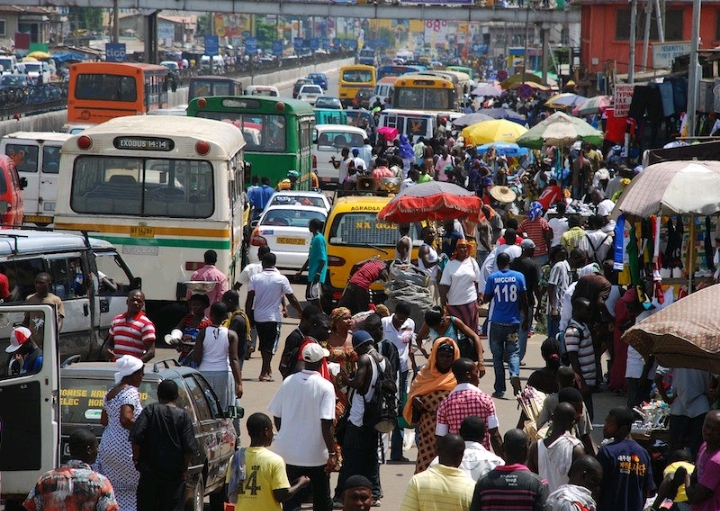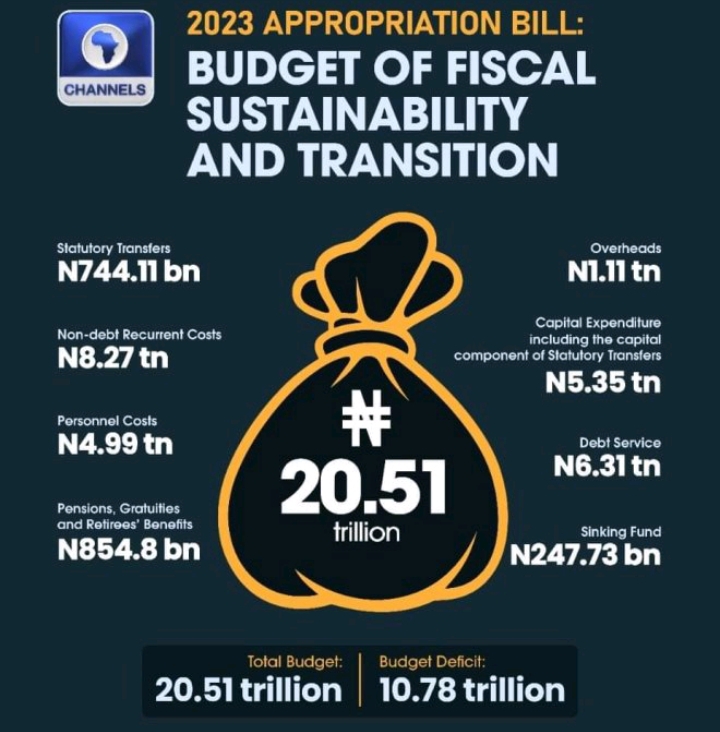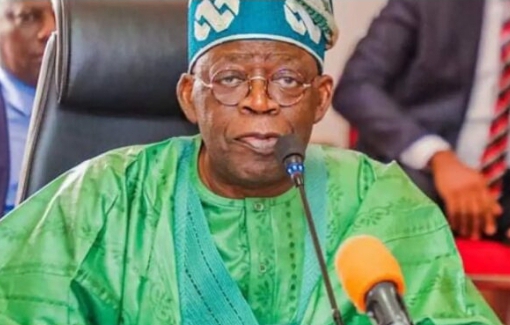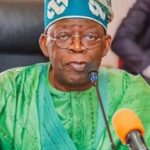Nigeria masses are grappling with an agonizing tale of exclusion from the nation’s commonwealth. The private sector which constitutes the majority population in Nigeria is plagued by a grave injustice and lamentable exclusion. This blog post sheds light on the harsh truth of how a mere 3% of Nigeria’s population, represented by public servants lays claim to a staggering 75% of the country’s commonwealth at the expense of those who should have benefited most.
Nigeria is the most populous country in Africa. As of September 2021, the estimated population of Nigerian citizens was around 206 million people, and it continues to grow. In Nigeria, there are two main groups of people when it comes to their source of income: public servants and non-salary earners.

Public servants are individuals who work for the government which includes civil servants, teachers, Medical Staff, police officers, military personnel, and other government employees. They provide essential services to the nation and play a significant role in maintaining the country’s infrastructure and administration. It has been reported that only about 3% of the entire population falls under this category. This small fraction of the population, surprisingly, consumes a significant portion of the country’s commonwealth.
Reports suggest that these public servants, despite their small number, directly utilize approximately 75% of the government’s annual expenditure which constitutes recurrent expenditure used for the day-to-day expenses incurred by the government, such as salaries, pensions, allowances, bonuses, running grants and administrative costs. This disproportionate distribution of the country’s commonwealth calls for concern.
Read Also: Transform Nigerian Local Councils into Agric Development Centres to Enhance Productivity
On the other hand, the vast majority of the Nigerian population falls under the category of non-salary earners. This group includes self-employed individuals, entrepreneurs, farmers, traders, artisans, and the unemployed. Non-salary earners earn their livelihood through various means that do not involve direct employment by the government or fixed salaries, and they play a vital role in the nation’s economic growth by contributing to the informal economy and providing goods and services to the population.
Nigeria’s population of public servants is relatively small compared to non-salary earners. However, the disproportionate consumption of the budget by public servants raises concerns about fair resource distribution. Addressing this issue and creating a more balanced economy that benefits all citizens will contribute to the overall growth and development of the nation.

In Nigeria, the government creates annual budgets to manage its finances and allocate funds for various expenses. Two crucial aspects of these budgets are the estimated income of the country and the estimated overhead cost of payment of salaries. Let’s break down what these terms mean and how they impact the citizens.
The estimated income of a country refers to the total amount of money the government expects to receive during a specific fiscal year. This income primarily comes from various sources, such as taxes (income tax, corporate tax, value-added tax, etc.), revenues from natural resources (oil, gas, minerals), foreign aid, and other sources of income like tariffs and levies.
Read Also: The Future of Nigeria Without Petroleum Subsidy
Creating an accurate estimate of the country’s income is essential for financial planning and ensuring that the government has enough funds to meet its obligations and provide essential services to its citizens. However, there can be challenges in accurately predicting income due to economic fluctuations, changes in commodity prices, and other external factors.
The estimated overhead cost of payment of salaries refers to the total amount of money required to pay the salaries of public servants, including civil servants, teachers, police officers, and other government employees. This cost is a significant part of the government’s recurrent expenditure, which includes regular expenses like salaries, pensions, and administrative costs.

One concern that arises is the proportion of the budget allocated to cover the overhead cost of salary payments compared to other essential sectors. The quote, “So annual budgets are made for public servants and not for the citizenry who have been reduced to onlookers,” highlights the perceived focus on public servants in budget allocation, which had led to neglect of other critical areas that directly impact the well-being of the citizens. Yet they kept demanding increments of salaries.
It is essential to strike a balance between funding public servants and addressing the needs and welfare of the entire citizenry. Sadly, a significant portion of the funds allocated for capital expenditures in the yearly budgets are as well taken advantage of by public servants and their associates. As a result of this, the wealth and resources that should be benefiting the entire country are often converted into personal assets by these individuals.
Read Also: Prioritize Digital Skills In Nigeria’s Education Curriculum For Future-Ready Workforce
It is no gain saying that government officials and civil servants who are meant to serve the public and manage the country’s resources responsibly often engage in corrupt practices. This means that the money intended for critical infrastructure development, social programs, and public services ends up being siphoned for personal gain.
This high level of corruption within the system has serious consequences for the nation. It hinders progress, leads to underdevelopment, and deprives citizens of essential services and opportunities. When public funds are misappropriated and misused, the overall welfare of the people suffers greatly.

The situation in Nigeria is indeed alarming, as it was revealed that high-ranking public servants, such as Permanent Secretaries, Executive Secretaries, Head of Agencies, and Directors, have accumulated immense wealth far beyond imagination to the extent that many of them own luxurious houses, filling stations, and even five star hotels in the Federal Capital Territory (FCT). These properties are believed to have been acquired using funds that were meant to improve the lives of ordinary citizens.
Even more concerning is the fact that some low-level public servants, whose official salaries are relatively modest, own extravagant properties in the upscale areas of Maitama and Asokoro in Abuja, and funded school fees of their children abroad. This raises serious questions about the source of their wealth and suggests that corruption and embezzlement of public funds are at play.
Read Also: 2023 Population Census: A Necessity for Addressing Nigeria’s Problems
Shockingly, a Special Investigative Panel that was led by Chief Okoi Obono-Obla, uncovered evidence of Nigerian public servants who own properties worth a staggering 20 million pounds in London. This raises further suspicion about the misappropriation of public funds intended for crucial sectors like education, social infrastructure, and other public services.
The mismanagement and embezzlement of public funds have dire consequences for the ordinary citizens of Nigeria. With funds meant for schools, hospitals, roads, and other essential services being diverted for personal gain, the quality of public services is severely impacted. Many essential projects and programs suffer from a lack of funding, hindering the nation’s progress and development.

Despite the abundance of resources and potential for prosperity, a significant portion of Nigerians continue to suffer from exclusion and deprivation. This pervasive marginalization has cast a shadow over the nation, dampening the hopes and aspirations of countless individuals.
From the bustling cities to the remote rural areas, countless Nigerians find themselves denied access to essential opportunities that could uplift their lives, leaving the majority population without a chance to break free from the shackles of poverty. The dreams and aspirations of talented individuals with immense potential often remain unfulfilled due to the inability to access the opportunities necessary to flourish.

As we contemplate the sombre reality of the majority population of Nigerians being ostracized from partaking in the country’s commonwealth, it becomes clear that urgent and concerted efforts are needed to rectify this injustice by acknowledging and rectifying the disparities, and by fostering a more inclusive and equitable society.
To address this marginalization, Government should strengthen indispensable critical sectors like healthcare, education, justice, security, and defence, and invest in their improvement to enhance their efficiency so as to ensure that public servants uphold their duty to serve the nation with integrity and dedication. On the other hand, the government should reorganize Ministries that have overlapping functions and merge them to reduce redundancy and save costs.
Read Also: Direct Taxes Deduction from Every Bank Transaction Can Boost Tax Revenue
The cost of governance in Nigeria has been a burden on the economy-diverting resources away from essential services. Therefore, instead of increasing salaries for non-essential government services, the government should consider discouraging people from seeking employment in non-essential sectors and prioritize the welfare of its private sector to pave the way for a more equitable and prosperous future for all its citizens.
Inclusive policies and equitable distribution of resources are essential to ensure that all Nigerians partake in the nation’s commonwealth. This can be achieved by encouraging investment in the private sector, promoting entrepreneurship, supporting agricultural practices and smallholder farmers so as to create income-generating opportunities in rural areas.
In today’s ever-changing economic landscape, governments need to prioritize and invest in sectors that serve as the foundational pillars of economic growth. By encouraging and focusing on Agriculture, Small Scale Enterprise, Trading, and Manufacturing, where the majority of the population is employed, governments can unleash the true potential of their economy and drive sustainable growth for the nation.

Agriculture has long been the lifeblood of many nations, providing food, raw materials, and employment to a significant portion of the population. By supporting and modernizing this sector, governments can create a ripple effect of economic growth. Investing in agricultural infrastructure, technology, and training can increase productivity and output, leading to more food security and reduced reliance on costly imports. Additionally, empowering farmers and agribusinesses can stimulate rural development, decrease poverty rates, and boost overall economic activity.
Small Scale Enterprises (SSEs) are the backbone of any thriving economy, playing a vital role in generating employment and fostering innovation. Encouraging and nurturing SSEs through accessible financing, simplified regulations, and business support programs can ignite entrepreneurship and create a culture of self-reliance. Supporting SSEs can unlock a plethora of opportunities for inclusive economic growth, reducing income inequality and driving overall prosperity.
Read Also: Exploring the dichotomy between Character and Reputation
A robust manufacturing sector drives technological advancements, job creation, and economic diversification. By investing in modern infrastructure, research and development, and skill development programs, governments can revitalize their manufacturing industries. Domestically produced goods not only reduce dependence on imports but also contribute to economic growth by generating revenue within the country.
In conclusion, the plight of the majority population in Nigeria is an undeniable tragedy. The glaring disparity, where a mere 3% of public servants luxuriate in the lion’s share of the annual recurrent expenditure paints a stark picture of injustice and exclusion. It is high time for the nation to reckon with this reality and strive for a more equitable future. Only by fostering inclusivity can Nigeria transcend its unfortunate circumstances and pave the way towards a brighter, fairer, and more united future.
By addressing the marginalization of the majority population of Nigerians and streamlining government services, Nigeria can set itself on a path towards sustainable development and economic growth. Creating an inclusive society that harnesses the full potential of its diverse population will lead to a brighter future for all citizens. Through this, Nigeria can overcome its challenges and become a beacon of progress and prosperity in Africa and beyond.
Idowu E. Faleye, a certified Data Analyst, Political Activist, and writer, is a graduate of Politics & Public Administration. He’s the Founder/Chief Data Officer at EphraimHill Data Blog –a Data Reporting Site that is niche in Politics & Society. He can be reached at +2348132100608. or ephraimhill01@gmail.com












































![The Trend of Insecurity in Nigeria. [Part 2]](https://ephraimhilldc.com/wp-content/uploads/2024/09/Computer-Monitoring-of-Remote-areas.png)
































